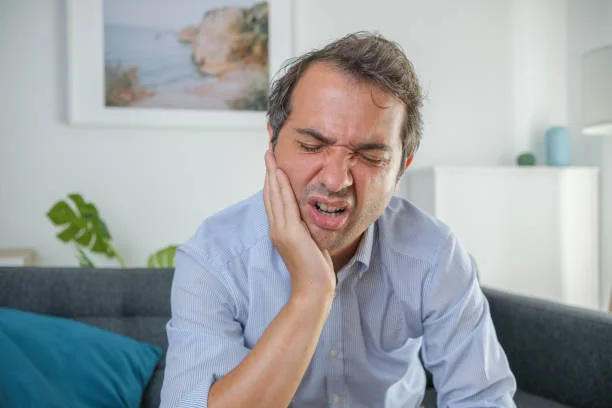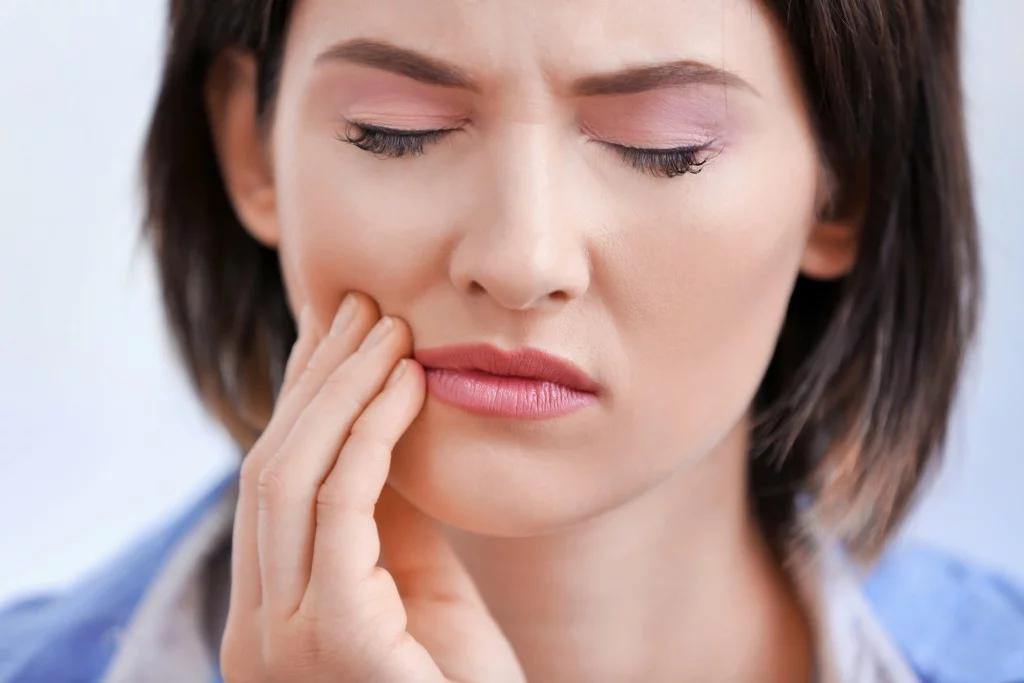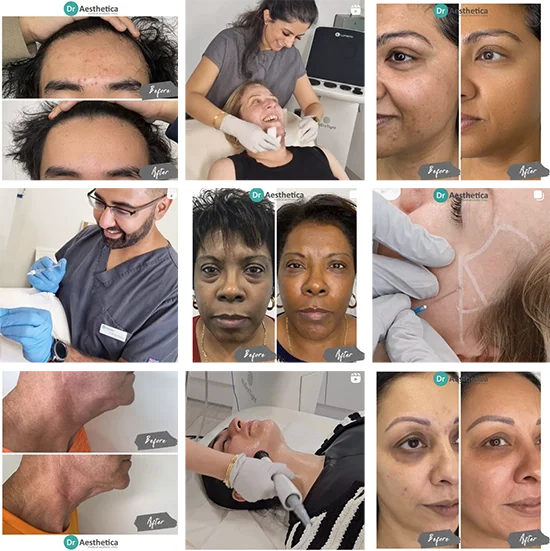Bruxism is a condition in which individuals unconsciously grind or clench their teeth. This can occur during sleep (sleep bruxism) or when awake (awake bruxism). Manifested through various symptoms, bruxism may lead to tooth wear, damaged dental restorations, jaw pain, and headaches. While the exact cause of bruxism remains unclear, certain medications have been identified as potential contributors.
Recent studies have found links between bruxism and the use of specific medications, with some drugs inadvertently increasing the risk of developing this condition. Among the medications associated with bruxism are certain antipsychotics and selective serotonin reuptake inhibitors (SSRIs), as well as other psychiatric drugs. In this article, we will explore various types of medications that have been connected to bruxism, providing you with valuable insights into this lesser-known side effect.
Unfortunately, most of these medications tend to be doctor prescribed. But don't worry, we also offer an effective treatment that can offer you relief even in cases where medication is a causal factor behind bruxism.
A Non-Invasive Bruxism Treatment That Actually Works!
Causes of Bruxism
Bruxism, the unconscious grinding or clenching of the teeth, can be caused by various factors. One of the primary causes is stress and anxiety. When you are under stress or experiencing anxiety, your body tends to produce more tension, which can translate into bruxism.
Another cause of bruxism is habitual behaviour. If you have developed the habit of grinding or clenching your teeth, you may continue to do so unconsciously, even when there is no apparent trigger. This is particularly true during sleep, when you are less aware of your actions.
Related: Are You Suffering From Sleep Bruxism?
Emotions such as anger and frustration can also contribute to bruxism. When you are angry or frustrated, your body generates tension, which may manifest as teeth grinding or clenching. That's why bruxism guides often recommend therapies such as breathing exercises, meditation, or talking with a friend or professional.
In addition to these factors, certain medications have been linked to bruxism and may be the reason behind your painful teeth grinding and clenching. Let's go through couple.

Medications Linked to Bruxism
Antidepressants
Antidepressants are medications commonly prescribed to help manage depression and other mental health conditions. While they can be effective in improving mood and overall well-being, some antidepressants have been linked to a bruxism.
The exact mechanism behind why certain antidepressants can cause bruxism is not fully understood, but there are several factors that are believed to contribute to this side effect.
One of the main theories is related to the way antidepressants affect neurotransmitters in the brain. Neurotransmitters are chemical messengers that facilitate communication between nerve cells. Antidepressants, such as selective serotonin reuptake inhibitors (SSRIs) like fluoxetine, increase the levels of serotonin in the brain by inhibiting its reabsorption. Serotonin is involved in regulating mood, sleep, and muscle activity.
Elevated serotonin levels, combined with other factors, may lead to an imbalance in the brain's control over muscle movement, including the muscles involved in chewing. This imbalance can result in increased muscle activity during sleep, leading to teeth grinding and clenching.
Another potential factor is the effect of antidepressants on other neurotransmitters, such as dopamine and norepinephrine. These neurotransmitters also play a role in regulating muscle activity. Alterations in their levels or activity caused by antidepressants may contribute to the development of bruxism.
Additionally, antidepressants can affect the central nervous system, including the areas responsible for regulating sleep patterns. Sleep disturbances, such as insomnia or changes in sleep architecture, have been associated with bruxism. Disruptions in sleep can increase the likelihood of teeth grinding and clenching during the night.
Suffering From Sleep Bruxism? Here's a Solution For You
It's worth noting that not all individuals who take antidepressants will experience bruxism as a side effect. The occurrence of bruxism can vary depending on factors such as the specific medication, dosage, individual susceptibility, and duration of treatment.
If you are experiencing bruxism or any other side effects while taking antidepressants, it is important to discuss it with your healthcare provider. They can assess your situation, adjust the medication if necessary, or provide strategies to manage the bruxism symptoms.
Antipsychotics
Antipsychotic medications are commonly prescribed to manage symptoms of mental health disorders such as schizophrenia and bipolar disorder. While these drugs can be effective in controlling psychiatric symptoms, they can also have side effects, including bruxism.
The exact mechanism behind why antipsychotics can cause bruxism is not fully understood, but there are several factors that may contribute to this side effect.
One possible explanation is that antipsychotics can affect the dopamine system in the brain. Dopamine is a neurotransmitter involved in regulating movement and muscle control. Antipsychotics work by blocking dopamine receptors, which helps to reduce hallucinations, delusions, and other symptoms of psychosis. However, this blockade can also disrupt the delicate balance of dopamine in the brain, potentially leading to changes in muscle control, including those involved in chewing.
Another factor that may contribute to antipsychotic-induced bruxism is the medication's impact on other neurotransmitters. For example, some antipsychotics can affect serotonin receptors in addition to dopamine receptors. Similar to antidepressants, alterations in serotonin levels and activity may influence muscle activity, including those responsible for jaw movement.
Furthermore, antipsychotic medications can have a sedating effect on the central nervous system. These drugs can cause drowsiness and sleep disturbances, including disruptions in sleep architecture. Sleep disturbances are often associated with bruxism, as sleep-related grinding and clenching of the teeth can occur due to a combination of increased muscle activity and changes in sleep patterns.
It's important to note that not all individuals who take antipsychotics will experience bruxism as a side effect. Also, the exact science behind why antipsychotics can cause bruxism is not fully understood.

Stimulants
Stimulant medications, including amphetamines and MDMA (commonly known as ecstasy), are prescribed for various medical conditions such as attention-deficit hyperactivity disorder (ADHD) or used recreationally. While these drugs can have beneficial effects, they are also known to cause bruxism and oral health complications as a side effect.
The science behind why stimulant medications can lead to bruxism is primarily related to their effects on neurotransmitters, particularly norepinephrine and dopamine. Norepinephrine is involved in the body's stress response and plays a role in regulating muscle activity. Dopamine is a neurotransmitter associated with pleasure, reward, and movement control.
Stimulant medications increase the levels of norepinephrine and dopamine in the brain. The enhanced release and activity of these neurotransmitters can lead to heightened muscle activity, including the muscles involved in chewing. This increased muscle activity can manifest as teeth grinding and clenching, which are characteristic symptoms of bruxism.
Furthermore, stimulants can have a stimulatory effect on the central nervous system, leading to increased arousal and wakefulness. This heightened state of alertness can contribute to increased muscle tension, including in the jaw muscles. The combination of increased muscle activity and tension can further exacerbate the occurrence of bruxism.
It's important to note that bruxism associated with stimulant medications can occur both during wakefulness and during sleep. During wakefulness, individuals may consciously or unconsciously clench or grind their teeth. During sleep, the movements may be involuntary and occur without conscious control.
If you are experiencing bruxism or other oral health complications while taking stimulant medications, it is crucial to discuss this with your healthcare provider. They can evaluate your condition, adjust the medication if necessary, or provide strategies to manage the symptoms of bruxism.
Obviously, if you are taking stimulants for recreational purposes, you don't need a doctor t tell you you need to stop!
Other Medications
Other types of medications that have been linked to bruxism include buspirone, a drug used for treating anxiety disorders. Additionally, some patients might experience teeth grinding as a side effect of muscle relaxants or Botox injections used for different medical conditions.
Remember that every person reacts differently to medications, and bruxism may not affect everyone taking these drugs. If you suspect that your medication is causing bruxism, consult your healthcare professional for alternative treatment options.
Signs and Symptoms
Bruxism, or teeth grinding, can result in various signs and symptoms that may affect your daily life. It's essential to be aware of these indicators to seek professional help when necessary.
You might experience frequent headaches due to the constant clenching and grinding of teeth. These headaches are often felt in the temples and can be quite painful, disrupting your day-to-day activities. Additionally, facial pain and soreness in the jaw muscles are common symptoms of bruxism and can result from the excessive strain put on these muscles.
A key area impacted by bruxism is the temporomandibular joint (TMJ), which connects your jaw to your skull. Bruxism can cause TMJ disorders, leading to pain and discomfort around the jaw joint and sometimes resulting in a clicking or popping sound when opening and closing your mouth.
One of the primary signs of bruxism is dental wear. As you continually grind your teeth, the enamel can wear down, leading to tooth sensitivity, decay, and even fractures. It's essential to monitor your teeth for any signs of increased wear, such as flattening or chipping.
Another symptom to look out for is tenderness in the jaw, face, and neck muscles. The constant pressure and grinding can leave these muscles sore and fatigued, causing stiffness and discomfort.
In summary, pay attention to the signs and symptoms associated with bruxism, such as headaches, facial pain, issues with the temporomandibular joint, dental wear, and tenderness in your muscles. By identifying these symptoms early, you can seek appropriate treatment and manage this condition more effectively.
Suffering From Bruxism? We are here to help!
Recommended Treatment Option: Botox
Botulinum Toxin Injections
Botox, a widely known brand of botulinum toxin injections, has emerged as a recommended treatment option for bruxism or teeth grinding. Here, we briefly discuss why Botox can be an effective treatment and how it works to alleviate this issue.
Botulinum toxin is a neurotoxin, and when injected into the muscles responsible for bruxism, it weakens them and has a muscle-relaxing effect. This weakness can directly reduce the force of teeth grinding and clenching, minimising the potential damage to your teeth and relieving discomfort in your jaw.
There are several reasons why Botox might be a suitable treatment option for you:
- Effectiveness: Botox injections have been shown to effectively reduce the symptoms of bruxism and provide relief to patients.
- Quick and minimally invasive: Botox injections are an outpatient procedure that can be completed within a few minutes. There is no need for general anaesthesia or an extended recovery period.
- Temporary and reversible: The effects of Botox injections typically last for several months, after which they wear off gradually. This makes it a risk-free option for patients who are worried about any potential long-term side effects.
To determine if Botox is the right treatment option for your bruxism, book a consultation with Dr Aesthetica. We will examine your specific condition and needs, talking you through the procedure and potential benefits. Before any treatment is administered, make sure to inform you let us know about any previous Botox injections or blood thinners you may have taken within the past four months.
Book Botox for Bruxism Consultation with Dr Aesthetica
If you're struggling with bruxism (teeth grinding), jaw clenching, or temporomandibular joint (TMJ) disorders, Botox could be an effective solution for you. At Dr Aesthetica, we offer a medically led Botox treatment to help alleviate your symptoms and improve your daily life.
By injecting Botox into the masseter muscles, the treatment can effectively reduce the intensity of teeth grinding, jaw clenching, and associated pain. It can also lead to masseter reduction, which may help in facial slimming. Many patients experience reduced stiffness and discomfort around the jaw after receiving Botox injections for their bruxism or TMJ disorders.
The process begins with a consultation, where you'll discuss your concerns with one of our qualified medical professionals. They will evaluate your bruxism and assess whether Botox treatment is suitable for you. If it is, they'll create a customised treatment plan that aims to provide the best possible results.
Dr Aesthetica's team of experts are well-versed in utilising Botox not only for cosmetic purposes but also as a therapeutic treatment for a range of conditions. Their 95% success rate in treating bruxism is a testament to their ability to provide effective, targeted treatments for their patients.
To book your Botox for bruxism consultation with Dr Aesthetica, simply reach out to our team and arrange an appointment. It's a great opportunity to learn more about the treatment and how it may improve your symptoms, quality of life, and overall wellbeing. Don't let bruxism continue to disrupt your daily life – take the first step towards relief with a consultation at Dr Aesthetica.


